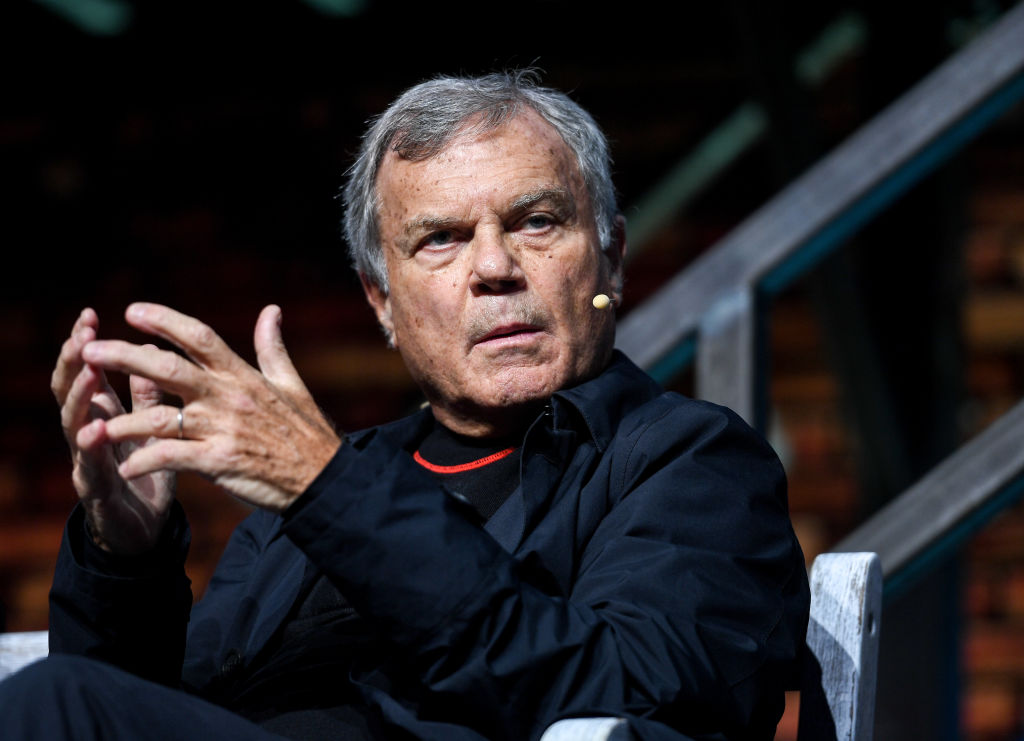Your vote counts: Morrisons faces pay revolt, WPP in shares clawback
Most pay committees have got it right this AGM season. Will there be drama at these upcoming meetings?
4th June 2021 12:30
by Graeme Evans from interactive investor
Most pay committees have got it right this AGM season. Will there be drama at these upcoming meetings?

Getting the balance right between pay restraint and rewards for outstanding work has made this year's AGM season even more challenging for companies and their shareholders.
Covid-19 means decisions on salary increases or discretion on bonuses and incentive awards must be set against a wide range of pandemic factors, such as the use of government support, staff redundancies, dividend payments or favourable trading trends.
Analysis by FIT remuneration consultants shows that most pay committees have got it right, after a high number of FTSE 350 companies with December year-ends secured levels of shareholder support in the mid-90% for their AGM reports.
However, a significant minority of companies have still received votes against remuneration-related resolutions of 20% or more. One particularly bruising AGM vote happened outside the FTSE 350 index, after Foxtons (LSE:FOXT) was rebuked for giving its chief executive an annual bonus of £389,000 having utilised government support to pay wages for furloughed staff.
- Shares for the future: everything you need to know
- Make a difference and use your vote this AGM season
- Open an ISA with interactive investor. Simply click here to find out how.
FIT said: “There are two opposing forces which have intensified through the pandemic: on the one hand some shareholders demand restraint and on the other leadership teams argue – with some justification – both that any negative impact on financial performance is not through any ‘fault’ of management and that they have never worked so hard.”
The consultancy's research found that half of FTSE 350 CEOs received no rise in base salary for 2021, compared with about a third in the years prior to the pandemic.
Some 65% of companies with a December year-end paid a bonus, but this was offset by the fact that only 4% awarded a full bonus. Around 40% of companies made discretionary downward adjustments, but very few have gone the other way in order to reflect the endeavours of their executives during the pandemic.
This upward discretion will be put to the test next week when supermarket Morrisons argues that its team shouldn't have their bonuses diluted by Covid-19 costs out of their control.
- This event is a big step forward for shareholder democracy
- Stockopedia: dividend blue-chips that offer income comfort
- Watch our latest market comment and fund interviews. Just subscribe to the ii YouTube channel here
Morrisons (Thursday, 10th June)
A decision to exclude Covid-19 costs of £290 million from the determination of annual bonuses means Morrisons (LSE:MRW) faces a rough ride from shareholders at its annual meeting.
The supermarket chain argues that using upward discretion is the right thing to do when the costs have come from ensuring continued food supply and protecting staff and customers.
The one-off hit led to a 51% fall in pre-tax profits to £201 million for the year to 31 January, well below the threshold for the profit element that accounts for 50% of the bonus scheme.
Adjusting for the £290 million meant the three executive directors secured their maximum opportunity, with chief executive David Potts getting a £1.7 million bonus as a result.
Remuneration committee chair Kevin Havelock said the scale of bonuses also reflected their outstanding response to the pandemic and extraordinary personal commitment.
He pointed out that Morrisons did not utilise government support, tripled the average bonus for staff in recognition of their challenges and paid a special dividend to shareholders.
- The inflation-proof shares fund managers are backing
- Inflation: what it is, why it matters and what to do about it
- ii view: Morrisons optimistic ahead of sporting summer
The approach, which also included adjustments to the long-term term incentive scheme, have not gone down well with Institutional Shareholder Services and Glass Lewis after the advisory firms said shareholders should oppose the non-binding vote on the remuneration report.
Glass Lewis said the original bonus outcomes were not unreasonable, given that the company's sales benefited from lockdown enforced closures in hospitality and other non-essential retail during the year under review.
It added: “We note that adjustments of this kind have been rare among the company's FTSE 350 peers, the majority of whom have not acted to apply upward adjustments to awards, irrespective of the shareholder and wider workforce experience over the period.”
Morrisons chairman Andy Higginson hit back at the advisory firms over the weekend, saying that the management team did the “right thing in working to keep the food supply chain open rather than worrying about their bonus.”
This year's annual report also reveals that Potts will continue to receive a base salary of £850,000, having not accepted a pay rise since his appointment in 2015. His total fixed and variable remuneration for 2020/21 came to £4.2 million, up from £4 million last time.
Morrisons introduced a new three-year pay policy at last year's AGM, but 35% of votes were cast against amid concerns over the treatment of pension allowances for executive directors.
The company subsequently pledged to reduce executive pension contributions to the rate available to the wider workforce by the end of 2022, while also increasing the shareholding requirement for Potts to 300% of base salary. Glass Lewis said shareholders can be “reasonably satisfied’ with the company's response and no further action is warranted.
With shareholders unlikely to be at this year's AGM in Bradford, the company yesterday held an online engagement event so the board could answer any questions in advance of votes being cast. Proxy votes on the resolutions are required by 11am on Tuesday.

WPP (Wednesday, 9th June)
Sir Martin Sorrell, the driving force of the media and advertising group for 33 years until his acrimonious departure in 2018, is still generating headlines at the FTSE 100 quoted WPP (LSE:WPP) after the board took the rare step of clawing back long-term share awards.
The company's annual report in April revealed that 2016 and 2017 grants will lapse as a result of Sir Martin's alleged disclosure of confidential information belonging to WPP and certain of its clients to the media during his tenure as a WPP director.
Sir Martin, who has gone on to set up listed rival S4 Capital, said he had left the matter for his lawyers to deal with. The Times quoted him as calling the clawback decision a petty move over a relatively small number of shares.
Elsewhere in the annual report, WPP disclosed that current boss Mark Read was paid a total of just over £1.1 million in 2020/21, compared with £2.6 million the year before.
WPP's remuneration committee said Read and other executive directors had shown outstanding leadership and achieved several milestones in terms of progress against strategy, but that the pandemic meant it was not appropriate to award short-term bonuses for 2020.
Read's £910,000 base salary had been due for review in 2020 but this was put back to this year.
Voting advisory group Glass Lewis praised the committee's approach in the face of the pandemic and has recommended shareholders support the pay report. Last year's AGM saw just over 90% of votes in favour of the resolutions on the remuneration report and policy.
Shareholders should follow the meeting online and have until Monday to submit questions to the board.
Saga (Monday, 14th June)
Sir Roger de Haan will host the AGM for the first time in 16 years, having returned to Saga (LSE:SAGA) as chairman in the wake of the travel and insurance company's £150 million fundraising in September.
He joined the business as its eleventh employee in 1966 and was managing director when Saga floated on the stock market for the first time in 1978. It was in 1984, when his father retired, that he became chairman and chief executive and began to target financial services as well as the core offering of holidays for older people.
He sold the company in 2004 in order to focus on philanthropic activities and the development of Folkestone’s Harbour and its seafront. However, the company lost its way during a period of private equity ownership, and he is now back at the helm having invested £100 million for just over 26% of the share capital in the fundraising.
Sir Roger told shareholders: “I did this, not only because I realised that it would substantially improve the company’s position but because I thought I was making a sound investment, and felt that my long experience with Saga could benefit the company.”
The fundraising heightened the pain for those retail shareholders holding the stock since the 2014 flotation, with shares 90% lower than the IPO price and then diluted by the capital raise.
The stock has been on a recovery path since March, buoyed by hopes that July's maiden round Britain voyage for its new Spirit of Adventure cruise ship can signal the start of an upturn in fortunes.
Sir Roger, who has waived his £200,000 fee for the role of chairman, has urged shareholders to view the AGM proceedings remotely.
A new remuneration policy approved at last year's meeting included the introduction of a bonus scheme more closely aligned with current priorities, such as performance measures on compliance with debt covenants and the control of administration costs.
This resulted in a bonus of £872,830 for chief executive Euan Sutherland, who also received £490,000 worth of shares as part of a new three-year incentive scheme. His single figure for remuneration for the past financial year was £2.2 million.
These articles are provided for information purposes only. Occasionally, an opinion about whether to buy or sell a specific investment may be provided by third parties. The content is not intended to be a personal recommendation to buy or sell any financial instrument or product, or to adopt any investment strategy as it is not provided based on an assessment of your investing knowledge and experience, your financial situation or your investment objectives. The value of your investments, and the income derived from them, may go down as well as up. You may not get back all the money that you invest. The investments referred to in this article may not be suitable for all investors, and if in doubt, an investor should seek advice from a qualified investment adviser.
Full performance can be found on the company or index summary page on the interactive investor website. Simply click on the company's or index name highlighted in the article.